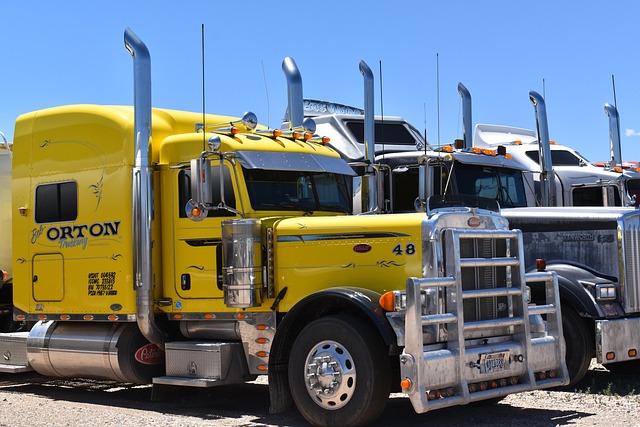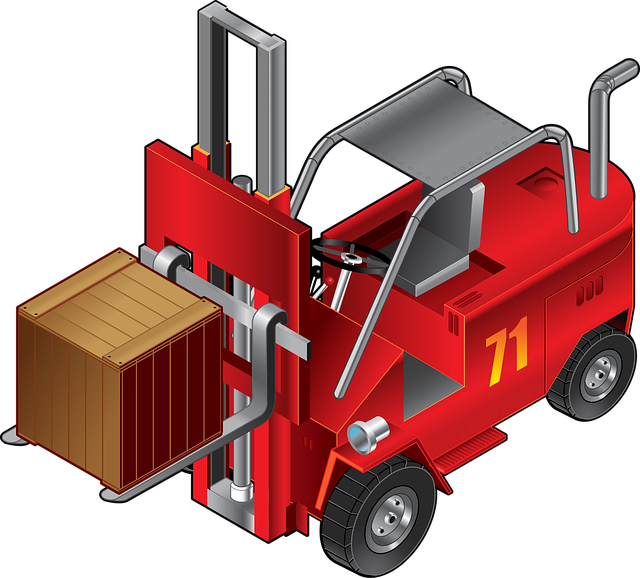In today's competitive trucking industry, success hinges on understanding cost-effective logistics. Businesses optimize operations by strategically selecting heavy-duty trucks and planning efficient routes. The market offers diverse options like electrified long-haul semi trucks for reduced fuel costs and emissions, as well as affordable workhorse trucks for durability and cost savings. Strategic truck selection and routing drive profitability. Accessing financing options facilitates acquisition of modern trucks with advanced safety features and fuel-saving technologies. Regular maintenance and load planning tools maximize efficiency, while technology integration enhances safety and reduces downtime. Efficient route planning using GPS and data analytics further optimizes operations, ensuring long-term success through strategic decisions regarding Select Heavy Duty Trucks.
In today’s competitive trucking industry, cost-effective big rig operation is a game changer. This article delves into key strategies to optimize your fleet’s performance while minimizing expenses. From understanding the nuances of cost-effective logistics and choosing the right heavy-duty trucks, to maximizing fuel efficiency, regular maintenance, leveraging technology for real-time tracking, and efficient route planning – each section offers actionable insights to help you select heavy-duty trucks that drive down operational costs without compromising reliability.
- Understanding Cost-Effective Logistics: An Overview
- Choosing the Right Heavy-Duty Truck for Your Fleet
- Optimizing Fuel Efficiency in Long-Haul Operations
- Regular Maintenance and Its Impact on Operational Costs
- Leveraging Technology for Real-Time Tracking and Management
- Strategies for Efficient Route Planning and Load Management
Understanding Cost-Effective Logistics: An Overview

In today’s competitive trucking industry, understanding cost-effective logistics is a key differentiator for success. Businesses seeking to optimize their operations often focus on two primary aspects: vehicle selection and efficient route planning. When it comes to selecting heavy-duty trucks, the market offers a range of options designed to cater to diverse hauling needs. One notable trend is the emergence of electrified long-haul semi trucks, which promise reduced fuel costs and lower emissions, making them an attractive choice for environmentally conscious operators. These advanced vehicles represent a significant step towards sustainable trucking, aligning with global efforts to mitigate environmental impact without compromising performance.
Furthermore, the availability of reliable workhorse trucks for sale at competitive prices allows businesses to access affordable heavy haulage options without sacrificing quality and durability. This accessibility is crucial in an industry where operational costs are under constant scrutiny. By combining the right selection of trucks with strategic route planning, trucking companies can significantly reduce expenses, enhance efficiency, and stay ahead in a dynamic market. In essence, cost-effective logistics is not just about cutting corners; it’s about making informed decisions that drive long-term success and profitability.
Choosing the Right Heavy-Duty Truck for Your Fleet

When it comes to cost-effective big rig operation, selecting the right heavy-duty truck is a strategic move. Businesses should consider their specific needs in terms of heavy load towing capacity and maneuverability before making a purchase. Today’s market offers various models equipped with advanced collision avoidance systems for big rigs, ensuring safety and efficiency on the road. These systems not only help prevent accidents but also reduce insurance costs and downtime.
In choosing the ideal fleet addition, evaluating financing options is crucial. Many manufacturers offer leasing or financing plans that make it possible to acquire heavy duty vehicles without a significant upfront investment. This flexibility allows businesses to manage cash flow while benefitting from cutting-edge technology, such as improved fuel efficiency, robust engines, and enhanced driver comfort features—all vital for cost-effective long-term operation.
Optimizing Fuel Efficiency in Long-Haul Operations

In long-haul operations, optimizing fuel efficiency is a key strategy to reduce operational costs and increase profitability. One effective approach is selecting top-rated heavy duty pickup trucks that are designed with advanced fuel-saving technologies. Modern engines, aerodynamic designs, and smart transmission systems significantly minimize fuel consumption without compromising performance. Additionally, proper maintenance routines, including regular oil changes and tire rotations, play a crucial role in maintaining these vehicles’ peak efficiency.
Load planning tools for haulers are another valuable asset in maximizing fuel economy. By optimizing the weight distribution and number of trips required to deliver cargo, operators can reduce unnecessary mileage and cut down on fuel costs. Moreover, financing options, such as those available on heavy duty vehicles, make it more accessible for businesses to invest in these efficient models without a substantial upfront burden.
Regular Maintenance and Its Impact on Operational Costs

Regular maintenance is a cornerstone of cost-effective big rig operation. By implementing a structured maintenance schedule, fleet managers can significantly reduce unexpected breakdowns and costly repairs. Well-maintained trucks run smoother, consume less fuel, and have longer lifespans, all of which contribute to lower operational expenses in the long term. Investing in regular inspections, preventive servicing, and timely part replacements can be seen as an essential strategy for optimizing commercial truck insurance quotes while minimizing downtime.
Moreover, integrating load planning tools for haulers and route optimization software for trucks into maintenance routines further enhances efficiency. These technologies enable drivers to plan routes that minimize fuel consumption and reduce wear on vehicles, aligning with the broader goal of cost savings. By seamlessly combining efficient routing with regular maintenance practices, fleet managers can achieve substantial improvements in overall operational costs.
Leveraging Technology for Real-Time Tracking and Management

In today’s digital era, leveraging technology is a game-changer for cost-effective big rig operation. By integrating advanced tracking systems and efficient cargo management software, fleet managers can optimize their heavy-duty truck operations. Real-time tracking for heavy vehicles allows for precise monitoring of vehicle location, speed, and performance, enabling proactive decision-making and reducing downtime. This technology also enhances safety by providing instant alerts on maintenance needs and driver behavior.
When selecting heavy-duty trucks, it’s crucial to consider affordable heavy haulage options that come equipped with these features or offer retrofitting capabilities. Efficient cargo management solutions can streamline the loading and unloading processes, minimizing labor costs and maximizing payload capacity. By combining these technological advancements, fleet operators can achieve significant improvements in operational efficiency, cost savings, and overall productivity without compromising on safety standards.
Strategies for Efficient Route Planning and Load Management

Efficient route planning and load management are key strategies for cost-effective big rig operation. By utilizing advanced GPS technology and data analytics, fleet managers can optimize routes, reducing fuel consumption and minimizing downtime. This involves identifying the most direct paths, considering traffic conditions, and factoring in weight restrictions to ensure compliance with regulations.
Selecting the right heavy-duty trucks is a critical aspect of this process. Highway-ready vehicles designed for long hauls offer improved efficiency and reliability, requiring less maintenance and reducing the need for frequent repairs. Additionally, leveraging spare parts for heavy-duty trucks near me can expedite maintenance turnaround times, ensuring your fleet remains on the road and maximizing return on investment with the best semi trucks for long hauls.
By implementing these cost-effective strategies, from selecting the right heavy-duty trucks to leveraging technology and optimizing routes, fleet managers can significantly reduce operational costs without compromising efficiency. Regular maintenance plays a pivotal role in minimizing expenses and maximizing vehicle lifespan. Embracing real-time tracking enhances decision-making, while efficient load management ensures optimal utilization of resources. By adopting these practices, the transportation industry can achieve sustainable cost savings and stay competitive in today’s market.
